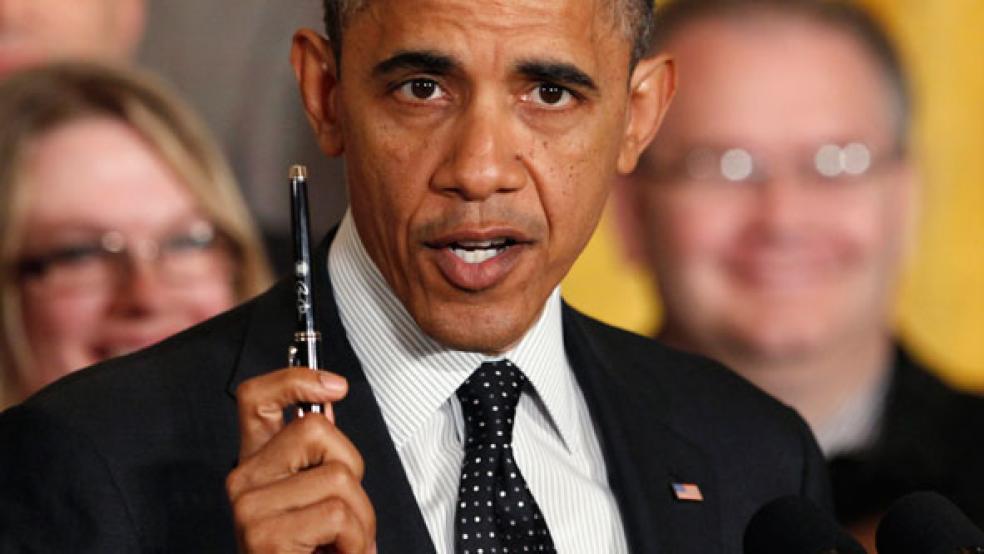The presidential election might just have been the opening skirmish in a class warfare that is unfolding—albeit politely—in Washington.
President Obama and House Speaker John Boehner (R-Ohio) have each pledged some give-and-take in addressing the budget issues in the fiscal cliff, but neither is willing to back down from their core position on tax cuts that are set to expire this year.
Obama would preserve the current low rates for American families earning less than $250,000, while GOP lawmakers want the rates extended for everyone. Democrats argue that the additional revenue from their proposal—totaling more than $50 billion next year—would stop cuts to federal programs that help the middle class. Boehner counters that the tax hike on better-off Americans would squelch job creation.
Without a deal to resolve taxes and automatic spending reductions scheduled for next year, the country will plunge over the fiscal cliff and, according to the Congressional Budget Office, land in a recession as unemployment skyrockets.
Democrats and Republicans will have a chance to hash out their differences at a White House meeting next week, but on Friday the war of words started with Obama and Boehner each declaring their peaceful intentions while sticking to their guns on taxes.
Newly reelected with exit polls indicating support for his plan, Obama claimed in remarks Friday afternoon at the White House that he’s “open” to “new ideas” and “compromise” – but he also reiterated that the American public had given him a mandate.
“I refuse to accept any approach that isn’t balanced,” Obama said. “I am not going to ask students and seniors and middle class families to pay down the entire deficit, while people like me making over $250,000 aren’t asked to pay a dime more in taxes. I’m not going to do that.
“This was a central question during the election,” Obama continued. “It was debated over and over again, and on Tuesday night we found out that the majority of Americans agree with my approach, and that includes Democrats, independents and a lot of Republicans across the country.”
The president essentially asked Republican lawmakers to give up their negotiating leverage on taxes by continuing the tax breaks for the 98 percent of the country with incomes below $250,000, noting that he’s got a pen ready to sign such the measure—which has already cleared the Democratic majority Senate but not the Republican-controlled House of Representatives.
Boehner claimed in remarks Friday morning that the president would basically be signing an economic death warrant, calling a potential deal that hewed to his party’s wishes “an opportunity for the president to lead.”
The Congressional Budget Office released a report showing that the most harmful consequences of the fiscal cliff come from increasing tax rates. According to Ernst & Young, raising the top rates would destroy nearly 700,000 jobs in our country,” the Ohio congressman said.
“The members of our majority understand how important it is to avert the fiscal cliff. That’s why the House took action earlier this year to replace the ‘sequester’ with other types of cuts. And it’s also why over the summer we passed a bill to extend all the current tax rates for one year so that we had time to overhaul our tax code.”
Republicans favor a reform that eliminates tax deductions and lowers rates, a move they say—contrary to historical evidence—will increase the flow of dollars into federal coffers. But with each side so committed to being right, they might end up taking the wrong step for the country. Neither Obama nor Boehner want the ravages of a $600 billion-plus sucker punch the economy would receive if 2013 starts without an extension to negotiations or a settled agreement.
Despite their differences on taxes, Sen. Bob Corker, R-Tenn., acknowledged on Friday that Obama—who returns to the White House with a narrow two-point margin—and Boehner—a 12-term lawmaker from suburban Cincinnati—are the country’s best shot at making peace.
“Now is not the time for any of us, Republicans, Democrats, rump groups or gangs, to be publicly promoting our own plans,” Corker said. “Right now, the only two people who are likely to get a result by year’s end are President Obama and Speaker Boehner. I’m convinced there is enough common ground to solve the problem, and the constructive thing for all of us to do at this point is to use all of our collective energy to support their negotiations on a fiscal reform package.”





